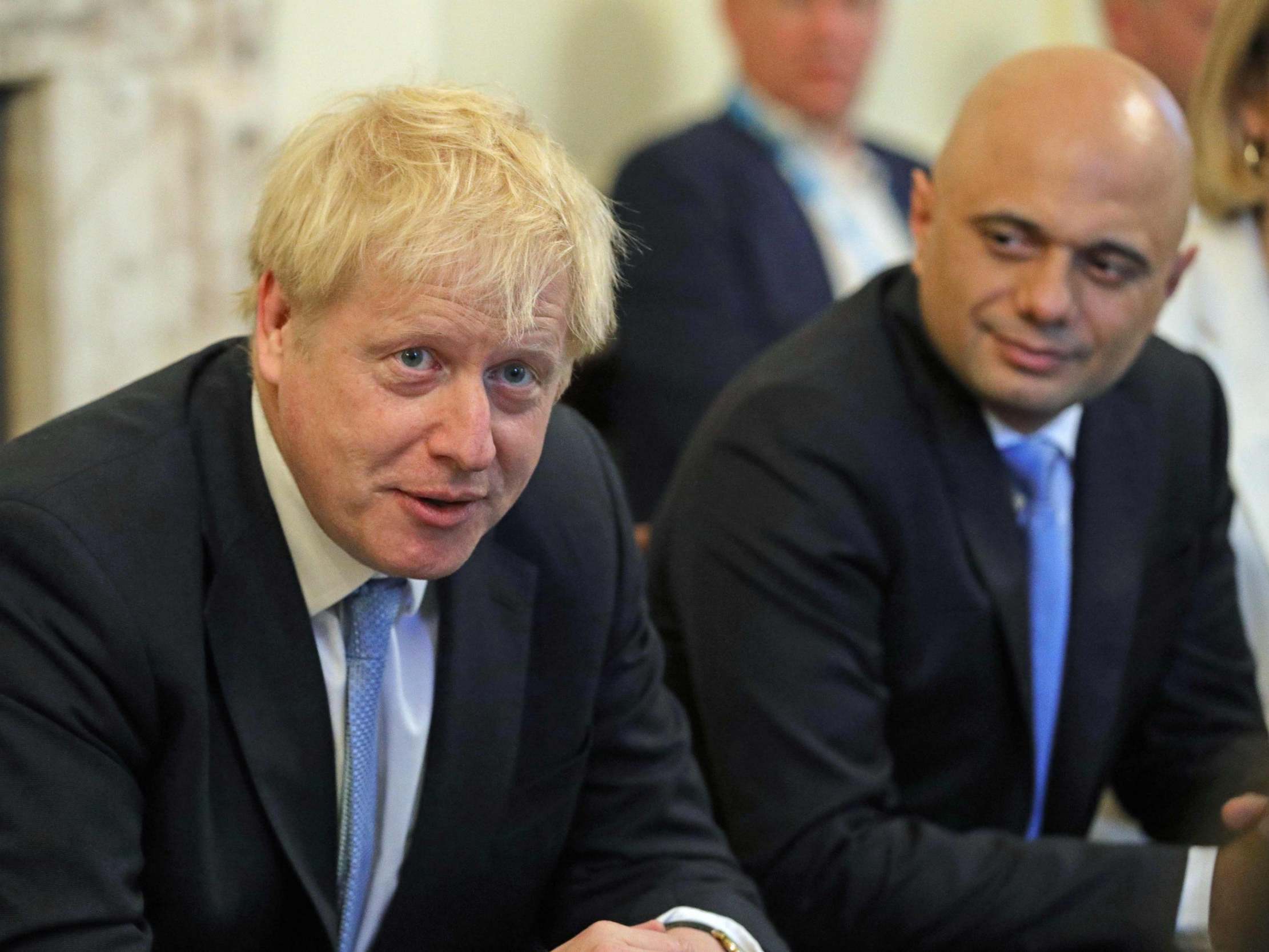What to expect in Sajid Javid’s autumn spending review
An autumn spending review when summer is barely over… so what will be in it? Assuming he doesn’t cancel that too

September means back to school and for the country’s politicians, back to a flurry of political activity. Whether politicians are trying to fight for Brexit, fight for a deal or fight to prevent parliament being prorogued, there is going to be a lot of energy as MPs return.
Despite all that, chancellor Sajid Javid’s autumn spending review is still going to be big news. It will highlight the ways in which this new cabinet plans to wow a public that’s largely weary of austerity and wanting news beyond Brexit.
It will also lay out the battle lines if an early general election happens.
But the Treasury has also said this review will only cover one year, making it less likely there will be any major long-term changes, such as changes to taxes.
So what is likely to be in Javid’s notes next week? Here are some possibilities.
Income tax
During Boris Johnson’s leadership campaign he pledged to raise the 40p income tax threshold from £50,000 to £80,000, cutting taxes for around three million higher earners.
The move would have cost some £9.6bn a year, which the now-prime minister said could be paid for by savings from the no-deal Brexit fund. His plans faced criticism for helping the richest at a time when poorer people are struggling.
Whether this is a priority for the government in the current climate it is hard to predict but the chancellor may want to follow through on Johnson’s pledges to cut taxes.
Stamp duty
Earlier this month, The Times reported that the chancellor was considering making house sellers pay stamp duty rather than buyers.
The idea would be that shifting the burden of the tax onto the sellers would make it easier for people trying to move up to larger homes.
However, it was criticised as an idea on the grounds that it would put off downsizing and mean some homeowners effectively paid twice.
Get a free fractional share worth up to £100.
Capital at risk.
Terms and conditions apply.
ADVERTISEMENT
Get a free fractional share worth up to £100.
Capital at risk.
Terms and conditions apply.
ADVERTISEMENT
The chancellor quickly distanced himself from such plans but he might be tempted to make some other changes to stamp duty, particularly if he was able to benefit new buyers or people on low incomes.
Inheritance tax
Voters widely dislike inheritance tax, despite less than 5 per cent of all deaths resulting in a tax payment – in fact, fewer than 25,000 estates are liable for the tax each year.
Yet the public dislike could mean that the chancellor sees tax reform as a vote-winner and something that is relatively easy to implement.
Laura Suter, personal finance analyst at AJ Bell, says: “The chancellor is in luck, as the hard work on looking at how to reform the system has already been done by the Office for Tax Simplification, meaning he could just adopt some or all of their recommendations.
“These include reforming the gifting system, scrapping the seven-year taper and creating an online system to prevent hundreds of thousands of people having to go through the IHT process. And as far as populist moves go, slashing the death tax is a pretty good one.”
IR35
IR35 is anti-avoidance tax legislation that is intended to tax disguised employment at a rate similar to employment. The idea is this rule prevents de facto employees from gaining the tax perks of working for themselves.
From 6 April next year it will become the responsibility of all medium and large-sized private sector bodies to determine whether contractors fall within the IR35 legislation. That has already happened for public bodies and this move is expected to bring many more contractors into the scope.
Simon McVicker, Director of Policy at the freelancer’s association IPSE, says: “With so much uncertainty, the upcoming spending round and Queen’s Speech must remove any added confusion and strengthen our business base.
“This means scrapping the chaotic IR35 tax changes that have already damaged the NHS and are now adding burden to business. Ministers must also maintain momentum to end late payment, which causes enormous damage to freelancers every day.”
Affected workers may hope for sympathy from the chancellor. A decade ago he argued that the UK should “repeal the silly IR35 tax”.
Increased spending on schools, hospitals and police
One thing that we will definitely see in this statement is an increase in spending. The chancellor has pledged extra money for schools, the NHS and police forces.
He’s keen to increase funds for those areas that particularly matter to the public, which has only increased suspicion that the government is getting ready to fight an election.
Writing in the Daily Telegraph, the chancellor said there would not be a spending spree as “it’s important that we don’t let our public finances get out of control”.
However, he said that after a decade of austerity “we can afford to spend more on the people’s priorities – without breaking the rules around what the government should spend – and we’ll do that in a few key areas like schools, hospitals and police”.
So increased spending in those areas is all but certain. Whether every department can expect the purse strings to be loosened seems much less likely.
All will be revealed when Sajid Javid stands up and speaks on Wednesday in his first major event as chancellor. Amid the current political and economic uncertainty he will attempt to lay down some definitive plans. Whether they will act as policy or a manifesto in a snap election remains to be seen.
Join our commenting forum
Join thought-provoking conversations, follow other Independent readers and see their replies
Comments
Bookmark popover
Removed from bookmarks